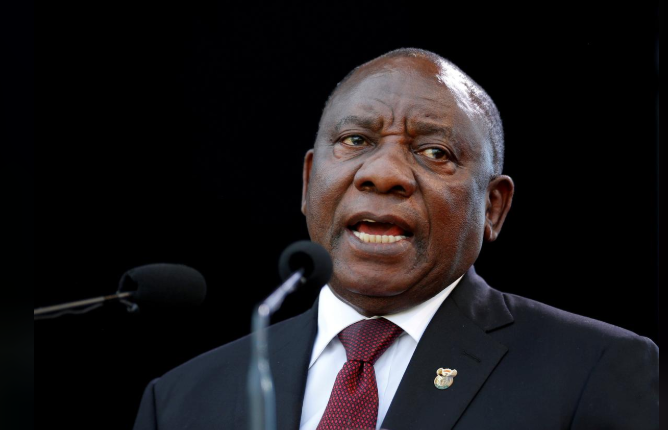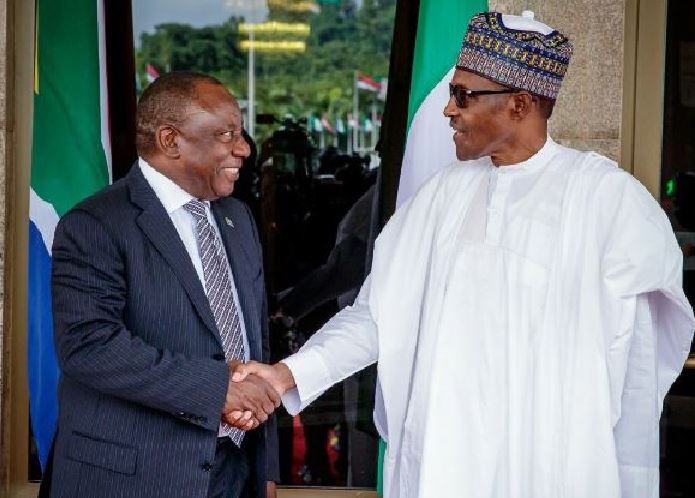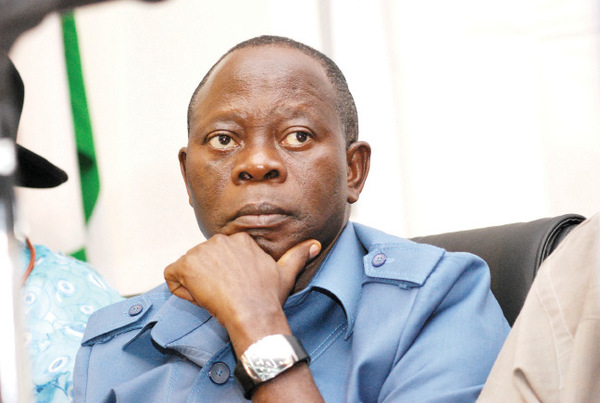By Enyeribe Anyanwu
There is a proverb among the Igbos in South Eastern Nigeria that mistake does not occur in two machete cuts. In other words, one cannot plead ignorance or mistake after inflicting two machete cuts on a fellow human being. Curiously, Nigeria has allowed itself to be inflicted several machete cuts by South Africa without the appropriate response.
It is on this premise that one is compelled to examine the incessant killings of Nigerians in South Africa, and the burning and looting of their businesses and means of livelihood, which has been euphemistically described as xenophobic attacks.
This raw hatred of fellow Africans, especially Nigerians in South Africa is now crying to high heavens. The frequent killings and so-called xenophobic attacks on Nigerians in the former apartheid enclave which Nigeria and her citizens fought hard and made sacrifices to liberate has reached alarming proportion. Unfortunately, the government of South Africa has been turning blind eyes to these atrocities as well as giving deaf ears to the cries, lamentations and anguish of the victims of these killings and attacks and their loved ones.
As a matter of fact, of the over 200 cases of killings, cold-blood murder of Nigerians in the last three years 13 cases have been reported to have been masterminded or carried out by the South African police. Where does that leave us? The police force is an agency of government of any country. The involvement of the police in the killings, burning and looting of property of Nigerians in South Africa is, therefore, incontrovertible evidence that the government is part of the hatred and “ethnic cleansing” going on in the country.
The South African police are known to have supervised the arsons and lootings against Nigerians and other Africans. They stand by watching and after days of continuous looting, will then make half-hearted show of arrests and the arrested offenders will never face any prosecution, thereby encouraging more and more attacks.
According to Nigerians in South Africa, these arsons and lootings are mainly perpetrated by the Zulu hostel dwellers, a group of hoodlums known to be very organized and well-coordinated in looting and burning of shops and businesses suspected to be owned by foreigners. Are these hoodlums and criminals not known to the police? They are said to be well organized and coordinated, yet the police allows them to operate with impunity.
Any iota of doubt as to the involvement of the government of South Africa in the atrocities against Nigerians and fellow Africans should be dispelled by the statement credited to the country’s Deputy Minister of Police which had seemingly justified the attacks by questioning the rationale for the preponderance of foreign nationals in their cities. In addition, the country’s top government officials while reacting to such attacks always refer to alleged involvement of Nigerian ‘criminals’ in the incidents.
All these, coupled with the fact that these incidents and mindless killings of Nigerians have been going on frequently with no prosecution and serious sanction of offenders or compensation of the victims of these attacks, indicate that the government of South Africa is complicit in the atrocities being committed by its citizens, and cannot continue to deceive the world with crocodile tears and hollow expressions of sympathy.
It is on this score that I subscribe to the recent stringent call by the Nigerian Guild of Investigative Journalists (NGIJ) and other Nigerians, especially the call by the ruling party (APC) on the federal government of Nigeria to stop handling the xenophobic attacks on innocent Nigerians in South Africa with kid gloves, but take decisive actions to put a permanent stop to these barbaric attacks, by imposing stiff sanctions on South African businesses in Nigeria.
Expressing bitterness at the latest attacks on Nigeria’s businesses in South Africa, the APC national Chairman, Adams Oshiomole, called on Nigerians to boycott South African interests and businesses in Nigeria, and urged the federal government to review bilateral agreements with South Africa and their companies operating in the country. He also asked the federal government to nationalize MTN by acquiring the remaining shares of MTN to make the company wholly Nigeria-owned, explaining that taking over the remaining shares belonging to South Africans, in the company, which was recently listed on the Nigerian Stock Exchange (NSE), would automatically strip it of its South African content.
The party also said Nigerians should boycott the services of MTN, Standard Chartered Bank, Stanbic IBTC and Multi-Choice, owners of DSTV and GOtv, stressing that “the recent turn of event offers the country an opportunity to reflect on why the federal government should continue to allow Multi-choice to repatriate millions of dollars to South Africa every year”. The party also called on President Buhari to bar South African Airways from flying to any part of the country, and to cut off all diplomatic ties between the two countries until Pretoria explains and resolves the ongoing xenophobic attacks on Nigerians.
All these actions, it said, will send a very strong message to South African authorities and its people.
Earlier, the NGIJ had also called on the government to engage South Africa in a trade war. According to the investigative journalists, “Considering the fact that Nigeria is a huge market for a large number of South African companies and businesses, it will make some sense to immediately engage South Africa in a trade war by reviewing our import policies, and imposing at least 30 per cent tariffs on all South African goods, and at the same time place new duties on target list of South African products.
South African business concerns have in recent years invaded Nigeria, which provides them the kind of market they cannot find in their country. Their modes of operation are known to have been shrewd and anti-Nigerian economy. Their excessive exploitation and profiteering at the expense of Nigeria and her citizens are well known. Some of them have been known to operate with impunity, and in flagrant contravention of the nation’s laws and regulations, yet they are welcomed as brothers and provided the best environment to operate.
The unfavourable business practices of MTN and DSTV in Nigeria have been such that other less accommodating countries would have shown them the way out of the country. Yet they are tolerated and patronized. They only thing saving Nigerians from their excesses is competition from other service providers who have entered the business environment they had hitherto controlled. Should one talk of Shoprite which strives to throw market women out of business in any city they operate. Yet these market women have never condemned them or demonstrated against them. Similarly, many businesses owned by South African nationals thrive in Nigeria unhindered.
In view of the acute hatred of Nigerian citizens and their businesses in South Africa, the call by NGIJ and APC really makes sense. Since Nigeria cannot descend to the bestial and barbaric level of South Africa; since Nigerian citizens cannot be encouraged to take to violence and retaliatory actions against South African businesses in Nigeria, the government should move to impose trade sanctions on South African goods and services.
With the latest September 1 event in Johannesburg against Nigerians and other African nationals, Nigerians expect nothing less than strong sanctions and a diplomatic face off. The trauma of Nigerian citizens in South Africa has gone beyond summoning the South African High Commissioner, and expressing Nigeria’s displeasure. Tough and decisive measures must be taken against South Africa to prove to the world that Nigeria is not that insensitive to the maltreatment of its citizens in any part of the world.
Unfortunately, the government and some economic experts are calculating the economic losses Nigeria stands to sustain in any retaliatory economic action. According to the Minister of Information, Lai Mohammed, “South African firms have either shut their doors or are open under heavy security. Nigerians own and run the shops in the various Shoprite malls across the country. Nigerians work there also.
“MTN is listed on the Nigerian Stock Exchange and the investors in this company are Nigerians. The workers are mostly Nigerians. Same applies to other South African businesses in the country. By attacking them, we are hurting our own people. That is the blunt truth.”
In the same vein, some economic and financial experts have said that Nigeria will lose in the large bilateral trade between the two countries which is put at $60billion. They say that a reprisal against South Africa’s business interests in Nigeria is not the way to go as it might lead to further job losses in the country. They list the over 120 South Africa-owned businesses in Nigeria operating in different sectors, including Stanbic IBTC, Rand Merchant Bank, MTN, Eskom Nigeria, South African Airways, South African Breweries (SAB miller), Multichoice, Shoprite, PEP Retail Stores, LTA Construction, Protea Hotels, Critical Rescue International, South African-Nigeria Communications etc. According to them, Nigerians work in these companies and reprisal against them will hurt Nigerians more.
Some say the number of flights between South Africa and Lagos weekly is a lot of business that will be lost in event of any business sanctions against South Africa. Others even remark that Nigeria is feeble against South Africa, and may not be able to reciprocate the action of the country and its citizens. They maintain that any retaliation will hurt the nation in the area of job losses and taxes.
These reactions and suggestions by the government and Nigeria’s economic pundits are not unexpected from a country that values money and mundane things above the lives of its citizens. Giving South African government the impression that Nigeria stands to lose more than they in the event of any economic face-off is rather unfortunate. Nigeria has calculated its losses; has it calculated that of South Africa? South African companies are making billions of dollars from the Nigerian economy every year, and repatriating same out of Nigeria. Yet, it doesn’t stop them from destroying Nigerian businesses in their country.
It’s indeed sad that while South African government does not consider the level of investment of its citizens and business organizations in Nigeria or the huge amount of dollars repatriated into the country yearly by its citizens operating in Nigeria before supporting all these xenophobic attacks, Nigeria is shivering at the prospect of a trade war between the two countries. By telling them that Nigeria is feeble, and cannot do anything, we are unwittingly telling them to continue with their barbaric attacks on Nigerians and their business interests in their country.
One can imagine what America will do in the face of these extreme provocations. Will the country consider its economic interests in South Africa or any country before teaching them a lesson, whether politically or economically? But here is Nigeria crying like a child whenever it is beaten by South Africa, and allowing the country to inflict on her more and more injuries.
President Buhari has already sent a special envoy to South Africa to meet President Cyril Ramaphosa and high level government officials. While diplomatic solution is welcome, especially if it will bring about permanent solution and not merely douse the fire which will blow out later on, Nigeria should not shy away from strong economic sanctions. South Africa should not in any way be given the impression that Nigeria stands to lose more in the event of a trade war. The envoy should be firm on Nigeria’s demand in order to avert economic and diplomatic war. They should make it clear to them that both countries would lose in such circumstances, and Nigeria is not more vulnerable.
As part of the terms, there should be adequate compensation for the victims of the xenophobic attacks. It is high time Nigeria bared its teeth against South Africa.



